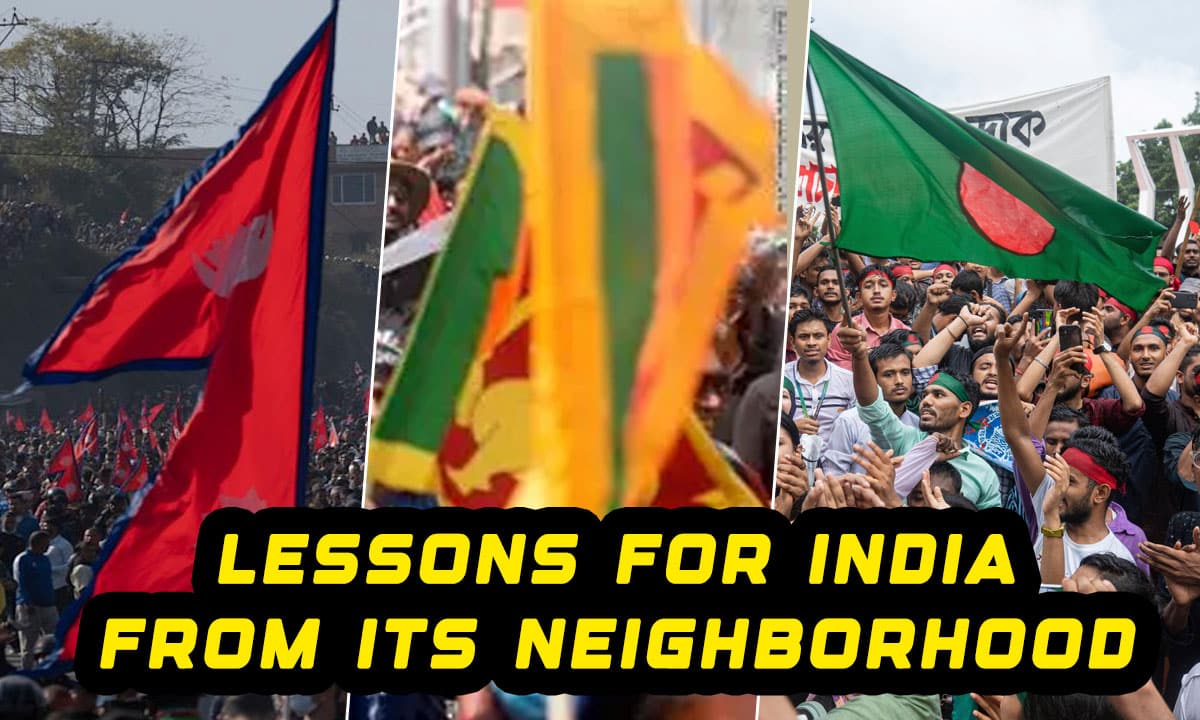When Governance Fails: Lessons for India from Its Neighborhood
In September 2025, Nepal faced two days of violent protests led by Gen Z demonstrators under the hashtag #NepoBaby. Government-imposed social media bans triggered mass unrest, with Parliament

Recent events in South Asia highlight the fragile balance between governance and public trust. In Sri Lanka (2022), economic mismanagement led to fuel shortages, rolling blackouts, and inflation soaring to 50%, sparking nationwide protests that forced President Gotabaya Rajapaksa to resign. In Bangladesh (2024), student protests against the quota system in government jobs escalated into deadly unrest, claiming over 130 lives and ultimately pressuring Prime Minister Sheikh Hasina to step down.
In September 2025, Nepal faced two days of violent protests led by Gen Z demonstrators under the hashtag #NepoBaby. Government-imposed social media bans triggered mass unrest, with Parliament, the Supreme Court, and leaders’ residences torched. Interior Minister Ramesh Lekhak and the Prime Minister resigned amid the crisis.
Also Read: Tourists stranded in Nepal as Gen Z protests force Kathmandu Airport shutdown
Meanwhile, in India, concerns persist over freedom of expression. The arrests of senior journalist Dilwar Hussain Mozumder, reporter Tushar Kharat, and academic Professor Ali Khan Mahmudabad for reporting or expressing critical opinions highlight a chilling effect on public discourse.
These incidents underscore a consistent lesson: ignoring dissent, curbing press freedom, or imposing control erodes public trust. India’s strong institutions, judiciary, and civil society provide an opportunity to respond constructively. By protecting free speech, engaging citizens, and ensuring accountability, the government can strengthen governance, prevent unrest, and maintain social cohesion.
